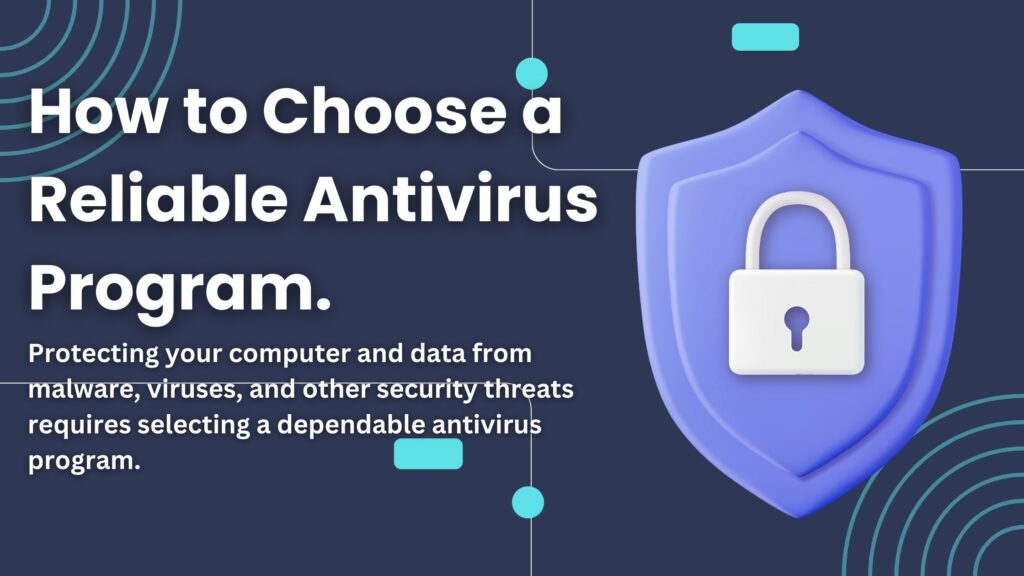
Protecting your computer and data from malware, viruses, and other security threats requires selecting a dependable antivirus program.
The following steps will assist you in choosing the best antivirus program:
Assess Your Needs
- Consider your specific needs: If you have a single computer, a family of devices, or a business network, do you need antivirus protection? Your options will be more limited if you are aware of your needs.
Research and Compare
- Start by reading up on popular antivirus software. Look for reviews, articles, and suggestions on reputable websites and forums for technology.
- Make a list of antivirus programs with a solid reputation and favourable user reviews.
Consider Your Budget
- Choose the antivirus protection budget that you can afford. Although some antivirus programs offer free versions with only the most basic features, the paid versions frequently offer more complete security.
Check for compatibility
- If you use any other software or hardware, make sure the antivirus program is compatible with it as well as your operating system (for example, Windows, macOS, or Android).
Evaluate Features
- Search for antivirus programs that provide a wide range of features. Real-time scanning, firewall protection, email filtering, and automatic updates are important features to take into account.
- If you think it is important, consider extra features like VPN services, password managers, and parental controls.
Performance Impact
- To determine how the antivirus software affects your computer’s speed and resources, read reviews or look at performance benchmarks. You do not want a program that significantly slows down your computer.
Detection Rates
- Analyse the antivirus program’s malware detection and eradication capabilities. Check for certification and independent lab test results from organisations like AV-Test and AV-Comparatives.
Ease of Use
- Make sure the antivirus program is simple to install and configure and has a user-friendly interface. Software complexity can increase configuration errors and decrease security.
Customer Support
- Verify whether customer service channels like live chat, email, or phone support are accessible. If you run into problems, good customer service may be essential.
Customer Support
- Verify whether customer service channels like live chat, email, or phone support are accessible. If you run into problems, good customer service may be essential.
Updates and Frequency
- Regular updates are required to ensure that the antivirus program remains effective against new threats. Make sure the software vendor offers regular updates and updates to its virus definition database.
User Reviews
- Look for user reviews and testimonials to get an idea of other users’ experiences with the antivirus program. Pay attention to both positive and negative feedback.
Trial Versions
- Whenever possible, use a trial version of the antivirus software before making a purchase. This allows you to test its performance and features firsthand.
Reputation and dependability
- Choose a reputable antivirus provider with a track record of providing dependable service and a dedication to user privacy and data security.
Additional Security Measures
- Consider adding other security measures to your antivirus protection, such as regular software updates, strong and unique passwords, and safe browsing practices.
Read the Terms and Privacy Policy
- Understand the antivirus provider’s terms and privacy policies to ensure they handle your data responsibly and do not collect excessive personal information.
Also Read: Best Practices for Data Backup and Recovery

Interesting content. I’m glad I found this page. I’m going to save it so I can read any more upcoming posts.